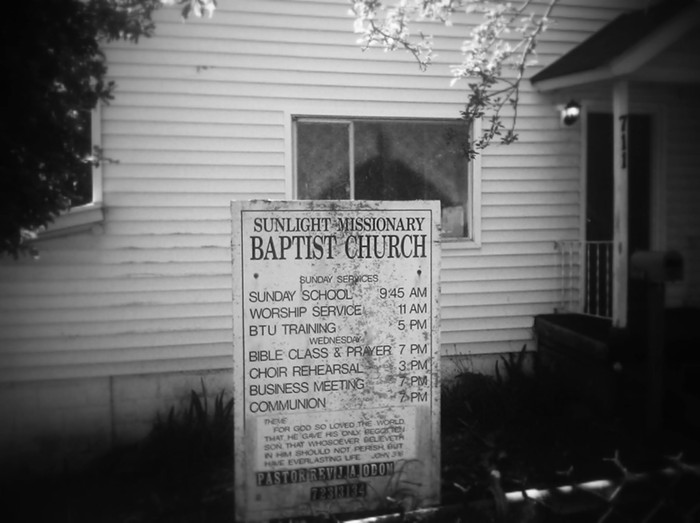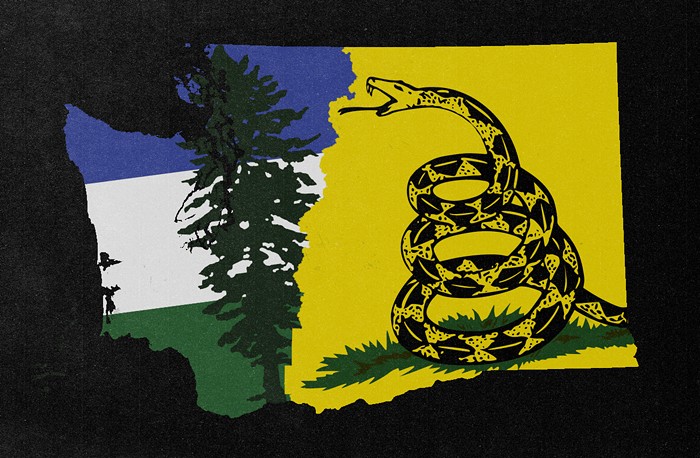
Okay, how do you want to do this? Do you want to talk about how the smoke from last year’s wildfires kept you indoors for weeks? Or how the loss of habitat from wildfires caused a bird plague this spring? Or how California spends $2.5 billion on wildfire response every year, while Washington’s base budget is about $41 million every two years? Or how every year we write “this is the new normal,” and then the next year it’s even worse? There are a lot of ways to describe the urgent need for more money to fight wildfires, and Hilary Franz is trying all of them.
You may recognize Franz from one of the gushing write-ups we publish every few months in The Stranger. In her capacity as Washington’s objectively excellent Commissioner of Public Lands, she oversees the state's wildfire fighting efforts. Those efforts, Franz says, are beyond exhausted. Unless we totally overhaul the way we deal with fires, we could be looking at many more days of sun-choking smoke, dead animals, and potentially even the loss of clean sources of water.
Fortunately, Franz has a plan for that. That plan — and your ability to breathe this summer — is scheduled to get a key vote in the Legislature on Friday.
“Last year was obviously horrific,” Franz said in a phone interview. “Within 72 hours, we had almost 80 fires … 600,000 acres burning, five times the amount of acres that burned in all of 2019.”
Yeah, yeah, you don’t need to tell us. We all remember — but as bad as it was here in Seattle, just imagine what it was like for the firefighting crews, which were insanely understaffed and in some cases working 96 hours without a break, Franz says. (You can read about just how bad the situation was in Natalie’s piece.)
The situation boils down to this: Wildfires can be kept under control if we prepare for them, but Washington doesn’t set aside nearly enough money to prepare, so we wind up with acres and acres of land that could not be more perfect for starting and spreading fires if you designed them that way intentionally. Instead of spending a little money to prevent fires, we’re spending lots more to try — and fail — to put them out after it’s too late.
So what do we do? Franz is looking to hire 100 more firefighters, which would include hand crews and heavy machinery operators. She says we need to buy two new fixed-wing planes, which basically look like giant passenger jets, but they’ve been hollowed-out to hold water instead of people. And she wants to upgrade their helicopters so that they can fly at night — yes, that’s right, Washington’s wildfire helicopters can’t fly in the dark. The state has better equipment for monitoring traffic than it does for putting out wildfires. It’s BANANAS.
As for fire prevention, Franz plans to restore 70,000 acres of forest per year for 20 years so they don’t burn as easily, and also to invest in rural communities so they don’t get wiped off the map like Malden did last year — a whole town, destroyed within hours.
“Malden was a very telling visual,” Franz says. “When I walked that town the day after the fire and saw home after home destroyed down to the foundation … Amongst those homes there’d be one home that was untouched, and it’s not because of luck, it’s because they took actions to protect their homes. … We have the ability to do that.”
Yeah, but we’ve got to pay for it. And that’s where House Bill 1168 comes in. The bill would set aside $125 million every two years for a variety of efforts designed to keep fires under control.
Franz has been trying to get more funding for wildfires since 2017, when she took office, and in past years bills like HB 1168 haven’t made it out of committee. This year has been different.
“Wildfire wasn’t a priority” for the legislature then, she says. “What’s changed is people are tired of the smoke-filled eyes each summer, watching the destruction — over 300 homes destroyed last year, the loss of life.”
For now, HB 1168 is scheduled for a vote on Friday at 9 a.m. in the Senate Committee on Ways & Means. If it moves along, it could soon get a full vote, and Franz is optimistic about its chances. (The bill passed the House unanimously, 96 to 0.)
She’s still urging constituents to contact legislators, though. “We need continued support through the end of session because it’s not over yet,” she says. “It took us 50-plus years to get into this problem. It’s going to take us a long time to get out.”















